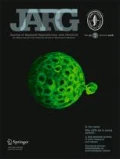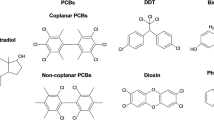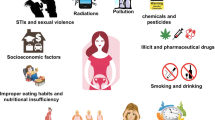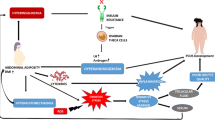Abstract
Purpose : Catechol-O-methyltransferase (COMT) inactivates the estradiol metabolites, 2-hydroxy and 4-hydroxy catechols, which have been implicated in the pathogenesis of endometriosis. A COMT valine to methionine polymorphism (G-to-A) in exon 4 of the COMT gene is polymorphic in the human population, with 25% of Caucasians being homozygous for the low-activity allele (COMT-L) of the enzyme. In a case-control study we investigated whether this COMT polymorphism is associated with endometriosis.
Methods : Polymerase chain reaction was performed to analyze the COMT genotype among women with surgically and histologically confirmed endometriosis (study group; n = 91) and in women without evidence of endometriosis confirmed by laparoscopy or laparotomy (control group; n = 92).
Results : Allele frequencies for the low-activity allele (COMT-L) among women with endometriosis and controls were 0.50 and 0.50, respectively (p = 0.999; odds ratio = 1.0, 95% CI: 0.66–1.51).
Conclusions : Our results suggest that the valine to methionine polymorphism in exon 4 of the COMT gene is not associated with the risk of endometriosis compared to a surgical control population.
Similar content being viewed by others
REFERENCES
Olive DL, Schwartz LJ: Endometriosis. N Engl J Med 1993;328:1759–1769
Redwine D: Mullerioisis: The single best-fit model of the origin of endometriosis. J Reprod Med 1988;33:915–920
Lebovic DI, Mueller MD, Taylor RN: Immunobiology of endometriosis. Fertil Steril 2001;75:1–10
Bischoff FZ, Simpson JL: Heritability and molecular genetic studies of endometriosis. Hum Reprod Update 2000;6:37–44
Georgiou I, Syrrou M, Bouba I, Dalkalitsis N, Paschopoulos M, Navrozoglou I, Lolis D: Association of estrogen receptor gene polymorphisms with endometriosis. Fertil Steril 1999;72: 164–166
Kitawaki J, Obayashi H, Ishihara H, Koshiba H, Kusuki I, Kado N, Tsukamoto K, Hasegawa G, Nakamura N, Honjo H: Estrogen receptor-alpha gene polymorphism is associated with endometriosis, adenomyosis and leiomyomata. Hum Reprod 2001;16:51–55
Baranova H, Canis M, Ivaschenko T, Albuisson E, Bothorishvilli R, Baranov V, Malet P, Bruhat MA: Possible involvement of arylamine N-acetyltransferase 2, glutathione S-transferases M1 and T1 genes in the development of endometriosis. Mol Hum Reprod 1999;5:636–641
Baranova H, Bothorishvilli R, Canis M, Albuisson E, Perriot S, Glowaczower E, Bruhat MA, Baranov V, Malet P: Glutathione S-transferase M1 gene polymorphism and susceptibility to endometriosis in a French population. Mol Hum Reprod 1997;3:775–780
Takayama K, Zeitoun K, Gunby RT, Sasano H, Carr BR, Bulun SE: Treatment of severe postmenopausal endometriosis with an aromatase inhibitor. Fertil Steril 1998;69:709–713
Dizerega GS, Barber DL, Hodgen GD: Endometriosis: Role of ovarian steroids in initiation, maintenance, and suppression. Fertil Steril 1980;33:649–653
Lessey BA, Metzger DA, Haney AF, McCarty KS, Jr: Immunohistochemical analysis of estrogen and progesterone receptors in endometriosis: Comparison with normal endometrium during the menstrual cycle and the effect of medical therapy. Fertil Steril 1989;51:409–415
Ball P, Knuppen R: Catecholestrogens (2-and 4-hydroxyestrogens): Chemistry, biogenesis, metabolism, occurrence and physiological significance. Acta Endocrinol 1980;232(Suppl): 1–127
Martucci CP, Fishman J: P450 enzymes of estrogen metabolism. J Pharmacol Ther 1993;57:237–257
Mannisto PT, Kaakkola S: Catechol-O-methyltransferase (COMT): Biochemistry, molecular biology, pharmacology, and clinical efficacy of the new selectiveCOMTinhibitors. Pharmacol Rev 1999;51:593–628
Lavigne JA, Helzlsouer KJ, Huang HY, Strickland PT, Bell DA, Selmin O, Watson MA, Hoffman S, Comstock GW, Yager JD: An association between the allele coding for a low activity variant of catechol-O-methyltransferase and the risk for breast cancer. Cancer Res 1997;57:5493–5497
Thompson PA, Shields PG, Freudenheim JL, Stone A, Vena JE, Marshall JR, Graham S, Laughlin R, Nemoto T, Kadlubar FF, Ambrosone CB: Genetic polymorphisms in catechol-Omethyltransferase, menopausal status, and breast cancer risk.Cancer Res 1998;58:2107–2110
Bulun SE, Zeitoun KM, Kilic G: Expression of dioxin-related transactivating factors and target genes in human eutopic endometrial and endometriotic tissues. Am J Obstet Gynecol 2000;182:767–775
Hoffman EC, Reyes H, Chu FF, Sander F, Conley LH, Brooks BA, Hankinson O: Cloning of a factor required for activity of the Ah (dioxin) receptor. Science 1991;252:954–958
Buttram VC, Jr: Evolution of the revised American Fertility Society classification of endometriosis. Fertil Steril 1985;43: 347–350
Tenhunen J, Salminen M, Lundstrom K, Kiviluoto T, Savolainen R, Ulmanen I: Genomic organization of the human catechol-O-methyltransferase gene and its expression from two distinct promoters. Eur J Biochem 1994;223:1049–1059
Bulun SE, Zeitoun KM, Takayama K, Sasano H: Estrogen biosynthesis in endometriosis: Molecular basis and clinical relevance. J Mol Endocrinol 2000;25:35–42
Yager JD, Liehr JG: Molecular mechanisms of estrogen carcinogenesis. Annu Rev Pharmacol Toxicol 1996;36: 203–232
Zeitoun K, Takayama K, Sasano H, Suzuki T, Moghrabi N, Andersson S, Johns A, Meng L, Putman M, Carr B, Bulun SE: Deficient 17beta-hydroxysteroid dehydrogenase type 2 expression in endometriosis: Failure to metabolize 17beta-estradiol. J Clin Endocrinol Metab 1998;83:4474–4480
De Leon FD, Vijayakumar R, Brown M, Rao CV, Yussman MA, Schultz G: Peritoneal fluid volume, estrogen, progesterone, prostaglandin, and epidermal growth factor concentrations in patients with and without endometriosis. Obstet Gynecol 1986;68:189–194
Chakraborty C, Huet-Hudson YM, Dey SK: Catecholestrogen synthesis and metabolism in the rabbit uterus during the periimplantation period. J Steroid Biochem 1990;35:39–46
Paria BC, Lim H, Wang XN, Liehr J, Das SK, Dey SK: Coordination of differential effects of primary estrogen and catecholestrogen on two distinct targets mediates embryo implantation in the mouse. Endocrinology 1998;139:5235–5246
Chakraborty C, Dey SK: Catecholestrogen formation in the mouse uterus and its role in implantation. Mol Cell Endocrinol 1990;69:25–32
Kelly RW, Abel MH: A comparison of the effects of 4-catechol estrogens and 2-pyrogallol estrogens on prostaglandin synthesis by the rat andhumanuterus. J Steroid Biochem 1981;14:787–791
Liehr JG, Ricci MJ, Jefcoate CR, Hannigan EV, Hokanson JA, Zhu BT: 4-Hydroxylation of estradiol by human uterine myometrium and myoma microsomes: Implications for the mechanism of uterine tumorigenesis. Proc Natl Acad Sci USA 1995;92:9220–9224
Hadfield RM, Manek S, Weeks DE, Mardon HJ, Barlow DH, Kennedy SH: OXEGENE Collaborative Group. Linkage and association studies of the relationship between endometriosis and genes encoding the detoxification enzymes GSTM1,GSTT1and CYP1A1. MolHumReprod 2001;7: 1073–1078
Author information
Authors and Affiliations
Corresponding author
Rights and permissions
About this article
Cite this article
Wieser, F., Wenzl, R., Tempfer, C. et al. Catechol-O-Methyltransferase Polymorphism and Endometriosis. J Assist Reprod Genet 19, 343–348 (2002). https://doi.org/10.1023/A:1016062726783
Issue Date:
DOI: https://doi.org/10.1023/A:1016062726783




